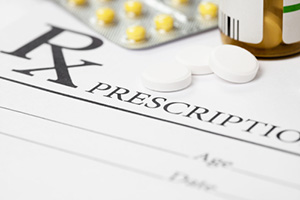Dear FDA: Let’s Get This Right, Generic Drug Makers Should Be Held Accountable Too

It’s a head scratcher. Generic drugs are overwhelmingly more popular than their brand name counterparts, making up around 80 percent of all prescriptions in the United States. Generic drugs sell more than brand, they exist on the market longer than brand — they are often significantly more affordable, they are more popular, end of story.
What doesn’t make sense is that while the popularity of generic drugs has soared, generic drugs have been playing by some very old rules, enacted in 1984, which pose significant threats to patients taking generics. The rule goes like this: the labeling for a generic should be the same as the labeling already approved for the brand-name drug it mimics. Meaning: when any safety warnings surface regarding the drug — and have to be put on the brand-name drug’s warning labels by law — the safety labels of the generic drug do not have to be updated.
If you were a generic drug maker and learned of a new safety alert that affected your drug and the patients taking it, would you update the safety label even if you weren’t required to update it by law? What if the update could prove costly by decreasing sales? We’d hope that generic drug manufacturers would make the right and ethical move and update their warnings regardless of whether or not they were legally required to. Unfortunately, that route is rarely ever taken.
One big reason why generic drug manufacturers do not update their labels when one of their generic drugs has new safety information is because they do not want to open themselves up to being sued should something go wrong. You see, the way the law is now, only brand-name drugs manufacturers can be sued.
And that’s a problem. Not just for the injured patients, but for the entire progress of medicine.
Brand-name drug manufacturers foot the bill for drug development and testing (which we would hope includes rigorous independent testing — again, that’s often wishful thinking, but that’s a different topic) and outside of initial sales when their brand-name drug reaches the market, brand-name drugs overwhelmingly lose sales to generic versions once the generic version goes to market. That’s why some brand-name drug manufacturers try to find ways to make sure that the generic versions are not allowed to be sold for as long as possible, such as saying that their brand-name drug is a totally new drug with nothing else like it on the market, thereby perhaps giving it extra time before the generics swoop in to lower sales for the brand name. But no matter how popular generics are, only brand-name drugs can be held accountable if the drug harms patients. Generic versions have no legal responsibility to update their warnings and their manufacturers are generally immune from litigation.
At Baron and Budd we ask that the right thing to be done for patients and for progress in the field of medicine.
Because generics aren’t going anywhere anytime soon, we have to make sure generic drug makers act responsibly — not just by wishfully hoping, but by legally requiring them to update their safety warnings when new information comes in that could affect their patients and making them subject to the same onus of the justice system should things go wrong.
Last year, the FDA proposed regulations that would enable the makers of generic drugs to update safety labels without having to wait for FDA approval to warn of newly discovered risks. Generic makers are heavily opposed to this change, as they are concerned about extra costs related to the threat of being sued.
We believe that until generic manufacturers are legally required to update their warnings as needed, and hold themselves out as accountable just like brand name drugs, then patients taking generics have no protection from what could be serious, and preventable, harm.
